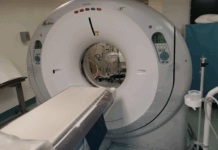Specialists of the Expert Council of the Union of Scientists of St. Petersburg, discussing the bill on Skolkovo in June, noted that some changes should be made to it. In addition to scientists, the commission of the Legislative Assembly of St. Petersburg for education, science and culture also participated in the discussion. Recall that the draft federal law was introduced by the President of the Russian Federation Dmitry Medvedev in the State Duma in May. In general, the law may be accepted by the end of 2010.
The city of the future
What is the Skolkovo Innovation Center? According to the developers of the project, this city will be an almost autonomous state in the Russian Federation. Thus, the project participants will be exempt from paying income taxes until the payback rate reaches a certain minimum. The total amount of contributions to social, medical and pension insurance will decrease to 14%. Also, the city will adopt an accelerated procedure for adopting various documents. And this is far from the whole list of innovations in the economy.
The Chairman of the Board of the Union of Scientists of St. Petersburg Lev Borkin noted: the largest corporations will participate in the project, among which, for example, Boing and Cisco are listed, as well as turbine repair enterprises. It is clear that they simply will not want to work with slow bureaucratic machines. That is why in Skolkovo its own microclimate will be formed, which contributes to the introduction of innovations.
Sergei Kozyrev, director of the Center for Promising Studies of St. Petersburg State University, speaking of Skolkovo, suggested that the law will serve as a guarantor of cancellation in the Innograd situation from the outside. In general, scientists consider the experiment to be quite interesting. However, according to Lev Borkin, he will be effective only if the experience of the “city of the future” spreads throughout the country.
Small flaws
The scientific component will not be implemented in Skolkovo — the city will be aimed at introducing. That is, a person, having a good development, but, not having the possibility of its implementation, can contact Skolkovo. If the idea seems good to the Expert Council, then the developer will join the Innograd. The project will receive managers and curators and will be brought by them to the start of sales.
But at the same time, the assembled scientists noticed that the concept of “research activity” is not disclosed in the bill. According to Professor SPbSPU Alexei Yalshevich, people who did not understand and do not participate in research activities wrote a bill. And the moment is very important and requires detail.
Also, the bill does not indicate the location of the future Innograd. Comments were made regarding public control over the implementation of the project. Since Skolkovo is a pilot project, it is necessary to describe the mechanisms of control over the results of its work. This was announced by Professor Andrei Kozlov.
At the moment, the bill does not even indicate the organizational and legal activities of the company. The document only says that the management organization is a Russian legal entity. It is clear that this moment also requires explanation.








